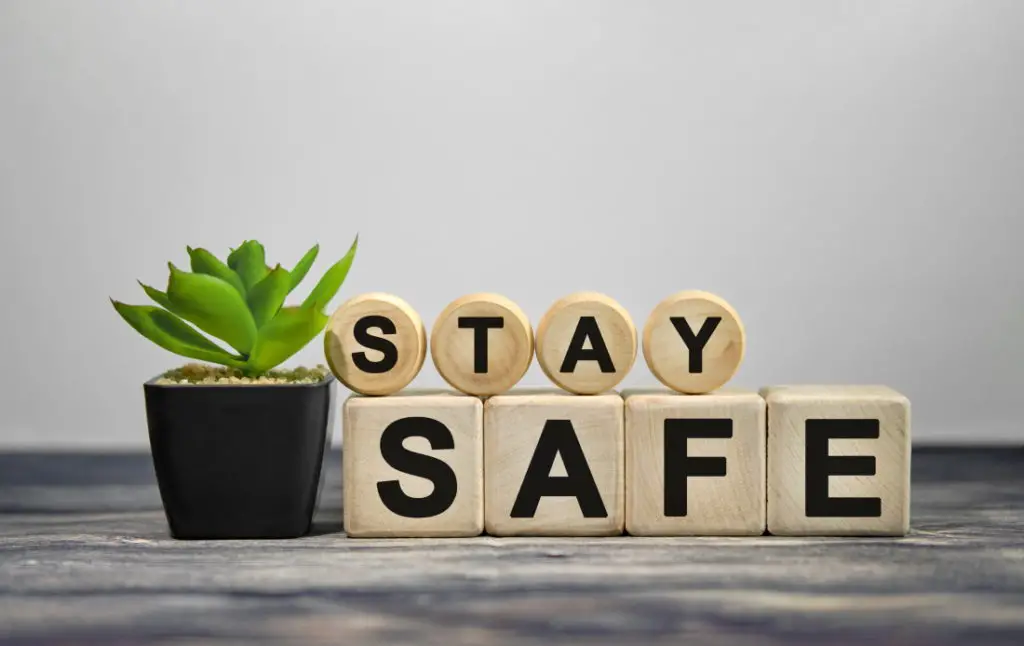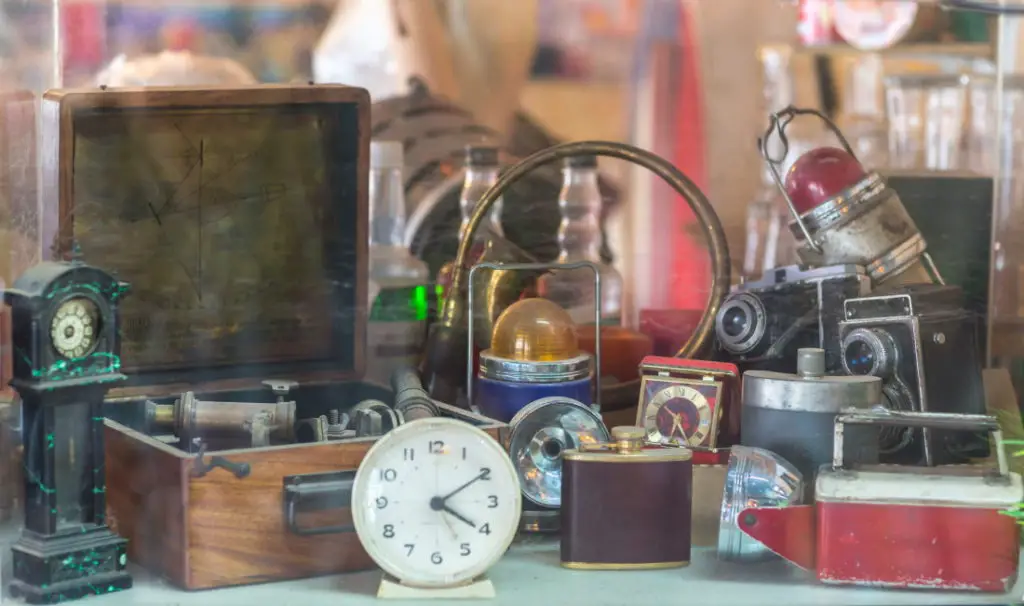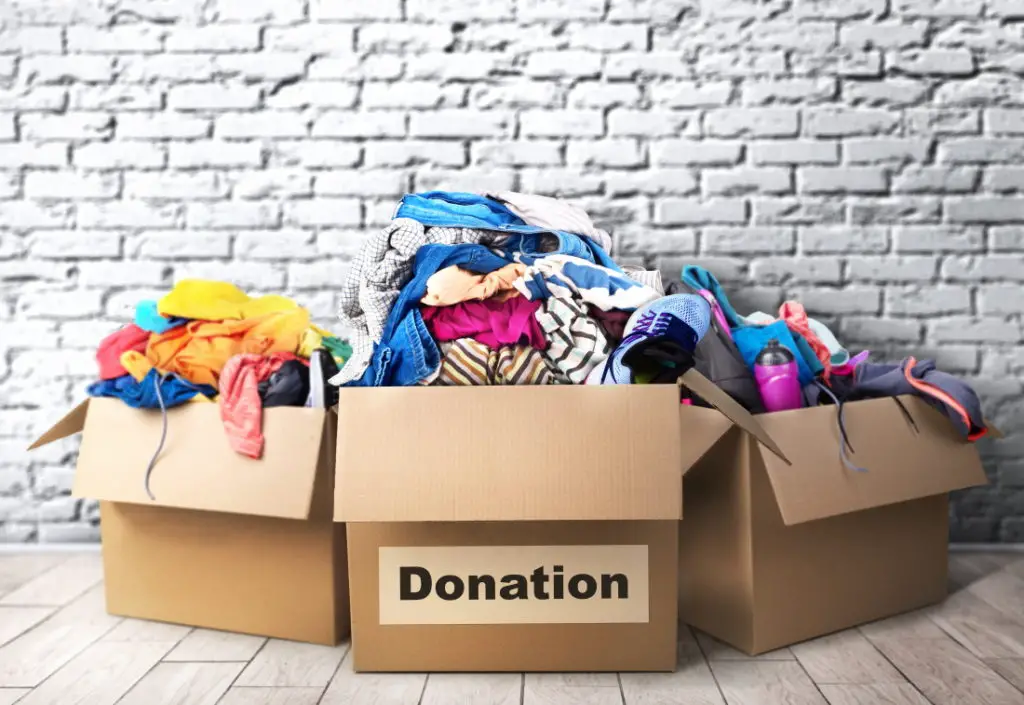Is it Better to Donate or Sell Unwanted Items?

Is it better to donate or sell unwanted items? You know that the goal of decluttering is to purge the extra stuff and remove it from your home. As you go through the decluttering process, you will have some things that are in relatively good condition, and you may consider whether they’re worth selling.
So, if you’ve ever asked whether you should sell or donate what you no longer want, use, or need, this will help with your decision-making.
Let’s explore some of the pros and cons of whether it’s better to donate or sell unwanted items.
Selling your unwanted items:
Pros:

1. The most obvious pro for selling your items is the potential for making additional money, particularly if you have things that are in excellent condition.
Furthermore, the sales platform choices are vast. And selecting the best option depends on what you’re selling and what works best for your situation.
Besides the traditional yard sale or garage sale choices, selling through a consignment store is another option. Keep in mind that if your item does not sell through this venue, however, you do not get paid the agreed-upon percentage.
If you prefer to sell your items online, there is definitely more than one online marketplace.
Some of the more popular ones are listed below.
Amazon
The Amazon Renewed program enables you to list and sell pre-owned electrical or mechanical items. A few examples of acceptable items include video games, cameras, appliances, phones. And the Amazon Seller program provides you with the option to sell other used items.
Undoubtedly, given that Amazon’s customer volume is so large, you can have an extensive reach, which may increase your chances of selling your items.
Facebook marketplace is another popular choice. Essentially, this is similar to an online yard sale, with local chapters. There are no listing fees.
eBay
eBay is another online alternative for a variety of items. So, whether you are purging collector’s items, women’s clothing, baby items, listing them on this platform is a way to get them sold and earn some extra cash.
It tends to be less restrictive than Amazon in terms of what products can be sold, making for a wider variety of items that you can list. Again, the customer base is significant. Keep in mind that shipping fees are a factor.
Poshmark
Poshmark is an online option for your gently worn clothing, accessories and footwear.

2. Another pro for selling your items is the sense of satisfaction you derive from recuperating value out of something you’ve purged. There’s a psychological benefit that goes along with making a sale and recovering some of the money for things you’ve purchased.
Cons:

1. For the most part, the online platforms on which you’re selling will not be held accountable for the in-person side of the transaction. This includes safety. If you have people coming to your home to pick up items, or you’ve opted to meet someone somewhere to drop off an item, exercise CAUTION and have someone else with you. Consider whether it’s worth the risk.
2. Whether you’re setting up a yard sale or preparing to list your items online, there’s a fair bit of preparation involved.
With a yard sale, you’ll need to price everything, display your stuff on tables. And afterward, dismantle your set-up and bring everything back into your home that didn’t sell.
To prepare your items for sale online, you’ll need to:
- Take good photos in a spot with decent lighting
- Upload the photos to the online platform and include a detailed item description
- Respond to requests from prospective buyers
- Ship the item or make plans to connect with the buyer for pickup purposes
Considering the amount of work you’ve already invested when decluttering, you may determine that the additional effort required for this process may not be worthwhile.

3. Keep in mind when you’re decluttering you are doing your best to get items out of your home as soon as possible. When you have stuff in your home that has been put aside to sell, it can start to look like another form of clutter.
Consider that it could take some time for things to sell. Consequently, the pile of items that you no longer want, use, or need will remain in your home for an unspecified amount of time.
Donating unwanted items:
Pros:

1. At the end of the day, helping others in need or donating our items to a worthy cause, such as homeless shelters, a women’s shelter, an Historical Society, or any number of charitable organizations, generates good feelings.
It makes us feel good to contribute to others in some way, shape, or form and know that our items are being put to good use.
2. Donating provides an opportunity to get your items out of your home as soon as possible. As mentioned above, there are plenty of donation options. Some of these organizations will even pick up your items from your home. Especially big-ticket items or heavier pieces of furniture, for instance.
Keep your donation box in a centrally located place so every family member has access to the container, and can pop things in when coming across items to be donated. The important thing is to get these items out of the house as soon as possible. So, scheduling a weekly drop-off, for example, is one way to ensure that they don’t remain in your home.

3. Are you aware that you can claim non-cash donations on your tax return? To get a tax receipt, you need to donate your items to a registered charity, such as your local Goodwill or Salvation Army. This donation valuation guide will provide a sense of the Salvation Army’s tax deductible value of frequently donated items.
Cons:
1. Make sure that what you are donating will be accepted by the donation centers, thrift stores, local charities, etc. in question. The last thing you want is to prepare your items for donation, take them over to the facility, and be informed that certain items are not on the accepted list.
So, in advance, take the time to look at the organization’s website or even make some contact with them to ensure that what you are donating will be accepted.

2. Once again, you need to schedule a date to drop off the items that you’re donating. This way, they don’t sit around your home and become a source of clutter.
It’s one thing to collect your items for donation. The next step is to drop them off. You’ve got to be intentional about this.
Recap
So, is it better to donate or sell unwanted items? If getting rid of clutter is the only factor, then donating is clearly faster.
However, we also know that if you can organize your space to keep your items for sale from becoming clutter, you can gain a few extra dollars and the satisfaction of recovering value from some of your items.
Either way, you are making plans to move unwanted items out of your home, which is a good thing. Congratulations!
